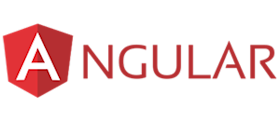Learn how to construct robust, scalable, and feature-rich web applications using Angular in this comprehensive course, with plenty of hands-on labs designed to immerse you in the skills required to get up and running with Angular right away.
Geared for experienced web developers, this Mastering Angular 18 Boot Camp is a five-day, comprehensive hands-on program that explores the latest features and benefits Angular has to offer. Throughout the course, you’ll learn the practical “real-world” foundational and advanced Angular skills required to solve the usual challenges you might face when developing modern web applications with JavaScript. The course is rich with hands-on activities, challenge labs, knowledge checks, discussions, and focused projects.
Kicking off with an in-depth introduction to Angular CLI and TypeScript, the course propels you into the world of component-driven development, touching on vital topics like data-binding, directives, and services. As you advance through the curriculum, you'll explore SPA routing, the RxJS library, forms, and unit testing, along with HTTP/REST protocols for server interaction.
By the end of this course, you’ll have built a comprehensive application that brings together all these elements: website structuring through components, dynamic interactivity via directives, and custom pipes for content refinement. You'll know how to employ reactive forms for active user engagement and SPA routing for fluid navigation, fortified by efficient data management through services. All of this is underscored by a strong emphasis on unit testing, as well as practical REST API interactions for modern server communication.
You’ll leave the course equipped to construct robust, scalable, and feature-rich web applications using Angular 18, able to implement seamless user experiences, integrate with various data sources through REST APIs, and employ best practices in unit testing for sustainable, high-quality code.

